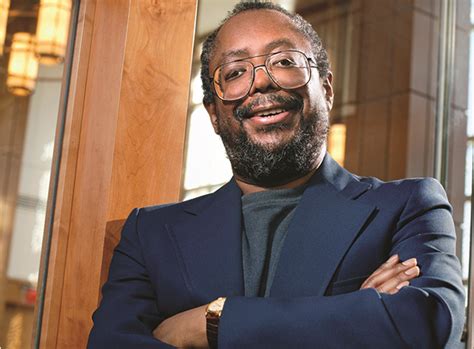Top 32 Quotes & Sayings by Edward P. Jones
Explore popular quotes and sayings by an American novelist Edward P. Jones.
Last updated on April 14, 2025.
I have said with as much sincerity as I can muster that if I were thrown into a dungeon with a sentence of one hundred years, with my only company being an illiterate guard who came twice a day with meals but who never spoke, I would still write - on coarse toilet paper in the dark if I could spare it.
Whenever people in that part of the world asked Patterson about the wonders of America, the possibilities and the hope of America, Patterson would say that it was a good and fine place but all the Americans were running it into the ground and that it would be a far better place if it had no Americans.























